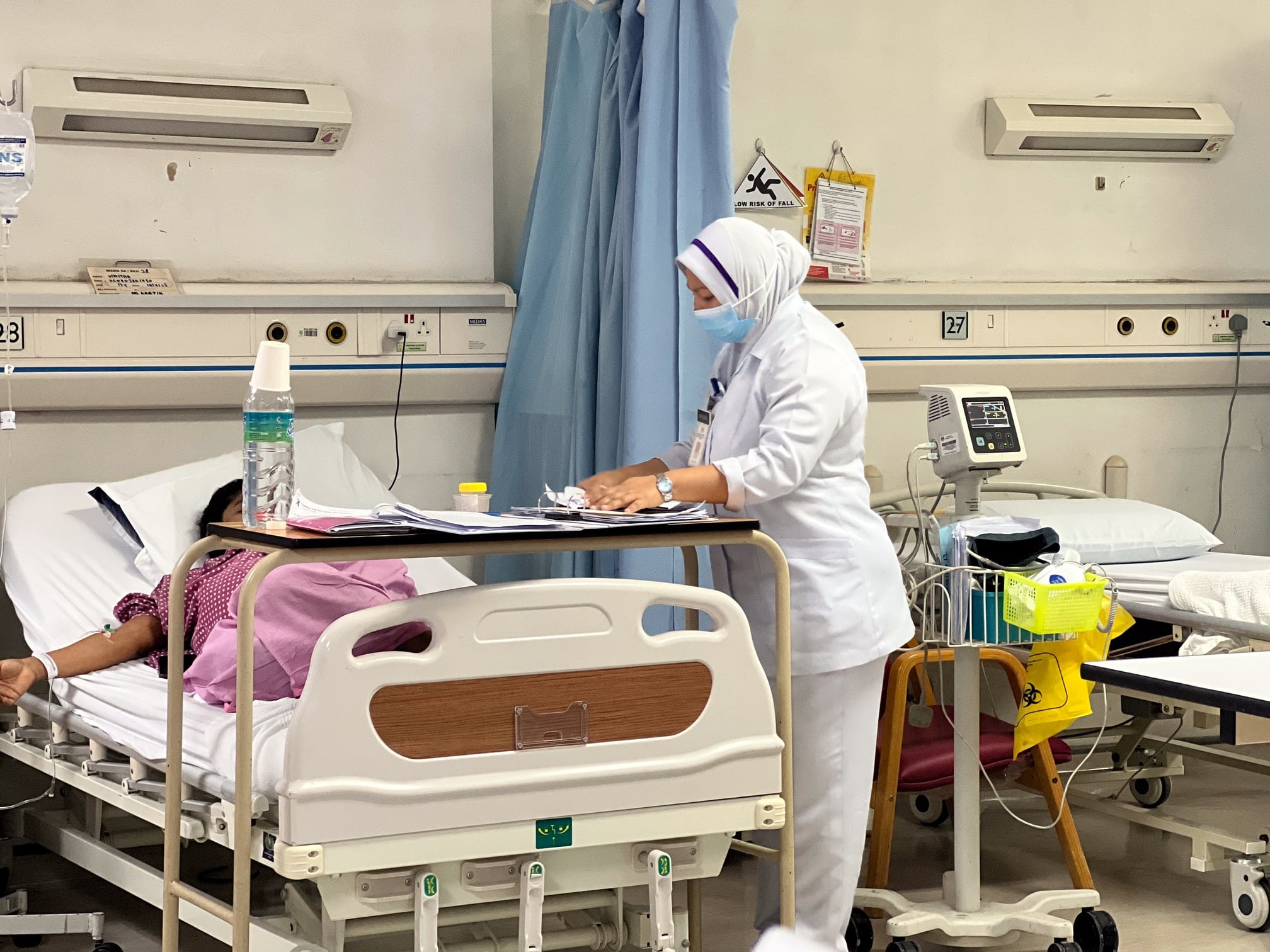As the health care landscape becomes increasingly complex, the need for our nurses to continually enhance their abilities, expertise, and skills has never been more pressing, especially for student nurses and registered nurses.
Capacity building is not merely about acquiring new skills, but it is about strengthening the capabilities of nurses to meet the evolving demands of patient care.
It is about ensuring that our nurses are equipped, both theoretically and practically, to handle the multifaceted challenges they encounter daily.
Integrated nurse capacity building systems and in-house training play a pivotal role in this endeavour. By providing continuous training within the hospital setting, nurses can immediately apply what they learn, leading to better patient outcomes and improved health care delivery.
Such systems also foster a culture of continuous learning, where nurses are encouraged to seek knowledge and share their expertise.
We identified the gap in the current Ministry of Health’s policy related to capacity building for nurses. Based on our years of experience as practicing nurses, the following capacity development areas should be strengthened:
Leadership: Strong leadership is paramount. Leaders who prioritise capacity building and champion the cause ensure that resources, both time and financial, are allocated towards training and development. We also create leadership qualities by guiding the junior nurses in the clinical area such as palliative care and oncology.
Commitment: A dedicated nurse can advance person-centred care, which entails treating each person as an individual, preserving their dignity, respecting their rights and preferences, empowering them to make decisions about their own care, providing holistic or individualized care, and creating a therapeutic work environment.
Culture: Creating a culture where learning is celebrated, and knowledge is shared can significantly boost capacity building efforts. Peer-to-peer learning, mentorship, and collaborative problem-solving should be encouraged. The importance of cultural competence in nursing focuses on health equity through patient-centred care, which requires seeing each patient as a unique person.
Spirituality: The emotional and spiritual well-being of nurses is crucial. By addressing their holistic needs, we can ensure they are mentally and emotionally equipped to absorb and implement new knowledge. Can speed up the formation of a therapeutic relationship and be a very pleasant experience for the nurse and the patient.
Technology: Leveraging technology for training, be it through online courses, simulations, or virtual reality, can make capacity building more accessible and effective.
At our current institution, we consistently build the capacity of our nurses and student nurses through methods such as regular in-house training. We also conduct regular workshops, seminars, and training sessions on emerging health care trends, technologies, and best practices in collaboration with hospital nurses team.
Furthermore, we extend our collaboration with other international educational institutions. The partnering with nursing schools and universities can ensure that training is up-to-date and aligned with current health care needs.
Mentorship programs are also practised to encourage clinical instructors to mentor student nurses, facilitating the transfer of knowledge and expertise. A competent mentor may assist new nurses learn and develop in their positions by offering them encouragement, direction, and advice.
In conclusion, capacity building for nurses is not just an institutional responsibility but a national imperative and individual.
By investing in our nurses, we are investing in the future of health care in Malaysia. It’s time we give this issue the attention and resources it rightfully deserves.
Sivananthini Banaya, Christina Jayamony David Chinniah, and Ramani Muniandy are from the Department of Nursing, School of Medical and Life Sciences, Sunway University.
- This is the personal opinion of the writer or publication and does not necessarily represent the views of CodeBlue.




